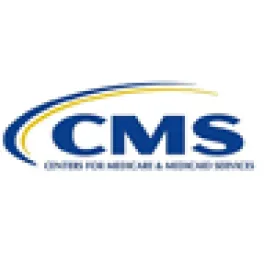Summary
CMS released a broad-ranging proposed rule for the Medicare Advantage and Part D Programs on Thursday, November 16, 2017. The proposed rule addresses a broad and diverse range of MA and Part D regulatory requirements, affecting not only Medicare Advantage Organizations and Part D Sponsors, but also health care providers, pharmacies, pharmaceutical manufacturers and others.
In Depth
The Centers for Medicare & Medicaid Services (CMS) released a broad-ranging proposed rule on Thursday, November 16, 2017 (the Proposed Rule) addressing key topics including Star Ratings, Medical Loss Ratios, Medicare marketing guidelines, Any Willing Pharmacy provisions, pharmacy rebates and a range of other topics. The Proposed Rule revisits past program decisions, implements certain provisions of the recently-enacted Comprehensive Addiction and Recovery Act of 2016 and the 21st Century Cures Act, and seeks to reduce regulatory burdens. CMS projects that the Proposed Rule will result in savings of approximately $195 million in the Medicare Advantage (MA) and Part D Programs over five years, at least some of which CMS anticipates would be passed on to Medicare beneficiaries in the form of lower premiums or additional benefits.
If finalized, the provisions of the Proposed Rule would impact a broad and diverse range of MA and Part D regulatory requirements, and would affect not only MAOs, but also health care providers, pharmacies, pharmaceutical manufacturers and others. Comments are due January 16, 2018. This article discusses a few of the key proposed changes and summarizes other substantive proposals.
Quality Star Ratings Changes
CMS proposes a variety of potentially significant changes to the Quality Star Ratings program, pursuant to which plans rated at 3.5 stars or above receive higher CMS payments to apply towards supplemental benefits or reduced member premiums. The changes include codifying a policy to downgrade ratings where data is biased or unreliable, changes to how ratings are assigned for consolidating contracts, and consideration of a variety of other issues.
Data Integrity. In the Proposed Rule, CMS proposes to codify its existing data integrity policy of reducing certain measure ratings to one star when the data used for that measure is inaccurate, incomplete or biased. CMS will apply this policy based on a contract’s failure to score at least 95 percent on a data validation audit. CMS also proposes to impose scaled reductions, rather than an immediate reduction to one star, for data integrity concerns relating to Part C and D appeal measures, e.g., when CMS determines that a plan sponsor has not forwarded all untimely appeals cases to the Independent Review Entity. The new proposal for scaled reductions in Part C and D appeals ratings may reflect CMS’s effort to provide a system to address findings from the industry-wide appeals timeliness monitoring effort it began in early 2017.
Consolidated Contracts. CMS also proposes a significant change to how it applies star ratings when two contracts are consolidated. Rather than applying the star rating of the surviving contract when two contracts consolidate, as is currently the case, CMS proposes to apply an enrollment-weighted average of the surviving and consumed contracts.
Other Star Rating Issues. Finally, CMS requests comments on a variety of additional topics related to star ratings, including issues that have been addressed in prior years but that CMS is apparently rethinking. These include issues such as whether ratings should be measured at the plan level rather than the contract level, how cut points for the various measures should be calculated and whether CMS should include a survey measure that captures physician experience with the plans, in addition to existing beneficiary surveys.
Codification of Star Ratings. For the first time, CMS proposes to issue regulations implementing the Quality Star Ratings program, which previously has been almost entirely governed through subregulatory guidance. As part of this proposal, CMS indicates that new quality measures will also be issued through formal notice and comment rulemaking in the future, although CMS would continue to use subregulatory guidance to modify existing measures.
Part D Any Willing Pharmacy (AWP) Requirements
The Proposed Rule attempts to strengthen the Part D AWP requirements, which are based in statute and implemented through existing regulations. While CMS has proposed some regulatory changes governing the provision of standard pharmacy contract terms to requesting pharmacies and defining certain types of pharmacies, the “clarifications” of existing regulations discussed in the preamble to the Proposed Rule may be just as significant as the proposed changes to the regulations.
Timeframe for Provision of Standard Terms and Conditions. CMS has proposed new regulations requiring Part D plan sponsors to provide pharmacies with standard terms and conditions within two business days of receiving a request for such materials. While this proposal mirrors subregulatory guidance issued in 2015, which stated that plans “should” provide these materials within two business days, the codification in regulation would make this a mandatory requirement. This proposal provides Part D plan sponsors with the opportunity to provide feedback to CMS on this approach, perhaps informed by efforts to comply with the earlier subregulatory guidance.
Definitions for Retail and Mail Order Pharmacy. CMS has also proposed a revised definition of “retail pharmacy” and a new definition for the previously undefined term “mail order pharmacy.” CMS refers specifically to the use of the term “mail order pharmacy” in the 42 CFR § 423.120 convenient access standards and requirements regarding a level playing field between retail and mail order pharmacies, but acknowledges broadly that the term is used in other regulations and subregulatory guidance. The proposed definition for mail order pharmacy is “a licensed pharmacy that dispenses and delivers extended days’ supplies of covered Part D drugs via common carrier at mail-order cost sharing.” As both retail and mail order pharmacies must be permitted to provide extended days’ supplies and a growing number of retail pharmacies engage in limited delivery of drugs by common carrier, the key criteria in this definition that appears to distinguish mail order pharmacies from retail pharmacies is the reference to mail-order cost sharing. As the imposition of retail versus mail order cost sharing at a particular pharmacy could in turn be determined by a Part D plan sponsor’s or pharmacy benefit manager’s definition of mail order pharmacy, there may be questions about how the proposed regulatory definition—if not further refined following industry comment—would be interpreted in practice and impact other Part D requirements.
Clarifications Regarding Reasonable and Necessary Contract Terms. In contrast to the flexibility- and competition-enhancing proposals set forth in other sections of the Proposed Rule, the discussion regarding AWP requirements signals CMS’s renewed interest in more closely regulating Part D pharmacy contracting. CMS previously attempted to strengthen these rules in a 2014 proposed rule, but ultimately did not finalize these more controversial proposals. Existing statutory and regulatory requirements set forth at Section 1860D-4(b)(1)(A) of the Social Security Act and 42 CFR § 423.505(b)(18) require Part D plan sponsors “to have a standard contract with reasonable and relevant terms and conditions of participation whereby any willing pharmacy may access the standard contract and participate as a network pharmacy.” The preamble to the Proposed Rule purports to “clarify” the meaning of “reasonable and relevant terms and conditions” but does not propose to codify any of these clarifications in new regulations.
CMS’s clarifications may suggest that Part D plans should not impose requirements, e.g., plan-specific accreditation or credentialing criteria, that could potentially prevent a pharmacy from participating in the plan’s network, stating that “where there are barriers to a pharmacy’s ability to participate in the network at all, it raises the question of whether the standard (that is, entry-level) terms and conditions are reasonable and relevant.” CMS also states that it is “especially concerned about anecdotal reports that allege such standard terms and conditions for network participation are waived, for example, when a Part D plan sponsor needs a particular pharmacy in its network in order to meet convenient access requirements,” and suggests that this results in the criteria no longer being considered “standard.” In contrast, existing CMS guidance recognizes that deviation from standard terms may be required for network access reasons – “[i]t is unlikely that a Part D sponsor could establish a network using a uniform set of terms and conditions throughout a service area because it will likely need to modify contracting terms and conditions to ensure access to certain pharmacies – for example, rural and long-term care pharmacies.” (Prescription Drug Benefit Manual, Ch. 5, § 50.8.1)
The proposed clarifications to the AWP rules take a different approach than the rules proposed in 2014, but reflect CMS’s continued desire to strengthen Part D AWP requirements. As in 2014, the agency’s interpretation of existing rules may raise questions about the scope of CMS’s authority to regulate Part D plan sponsor relationships with pharmacies. Specifically, the “non-interference provision,” set forth at Section 1860D-11(i) of the Social Security Act, prohibits CMS from “interfer[ing] with the negotiations between drug manufacturers and pharmacies and PDP sponsors.” The Federal Trade Commission and other organizations have cautioned CMS about the anti-competitive and pricing impacts of strengthening existing AWP requirements in the Part D program; this Proposed Rule may elicit similar reactions.
Medical Loss Ratio (MLR) Changes
CMS proposes changes to the Medicare MLR calculation to explicitly allow numerator treatment for fraud reduction expenses and reduce reporting obligations. Specifically, CMS proposes to include fraud prevention, detection and recovery activities in quality improvement activities, which would receive MLR numerator treatment. Current regulations exclude such expenses from the numerator, but the amount of claim payments recovered through fraud reduction efforts, up to the amount of a plan’s fraud reduction expenses, are included as an adjustment to the incurred claims. The Proposed Rule would simply allow fraud prevention, detection and recovery activities to be included in quality improvement activities without limitation, but would eliminate the provision allowing recovered claims payments to remain in “incurred claims.” The change would apply only for MA and Part D, and not to commercial or Medicaid MLR requirements. CMS also proposes to allow Part D Medication Therapy Management program expenses to count towards Quality Improvement Activities if such programs meet applicable regulatory standards.
CMS proposes to significantly limit MLR reporting requirements, reducing reporting to just the following four fields: organization name, contract number, adjusted MLR and remittance amount. However, CMS notes that it would still retain its authority to conduct audits of MLR data, so plans might need to prepare and maintain more detailed data even if that detail is not initially required to be submitted to CMS. CMS’s proposed revision to the reporting requirements does not change the obligation for plan sponsors (and their subcontractors, as applicable) to retain MLR-related documentation for ten years pursuant to 42 CFR §§ 422.2480(c)(1) and 423.2480(c)(1).
Other Proposals
The Proposed Rule also includes a number of additional proposed regulatory changes, including:
-
Flexibility in Benefits / Increasing Choice and Competition
-
Revise current interpretation of Sections 1852(d) and 1854(c) of the Social Security Act and 42 CFR § 422.100(d) (the so-called uniform benefit requirements) to permit MA organizations to modify plan benefits (e.g., cost-sharing, deductibles, and supplemental benefits) for members based on health status or disease state. CMS states that it would issue further clarification regarding this new flexibility through subregulatory guidance, without issuing any regulatory changes. Under the proposed approach, cost-sharing reductions and supplemental benefits offered to individuals based on health status would need to be medically related to the condition(s) at issue. Section 1557 of the Affordable Care Act and other civil rights laws may constrain the scope of this authority.
-
Permit variation in supplemental benefits by plan segment (county-level portions of a plan’s overall service area), in addition to variation in premiums and cost-sharing amounts by plan segment, as is currently permitted.
-
Repeal MA and some Part D meaningful difference rules.
-
-
Marketing and Enrollment
-
Narrow the scope of marketing materials subject to CMS review and approval.
-
Permit electronic delivery of the annual Evidence of Coverage and certain other beneficiary communications.
-
Codify a new open enrollment period for MA plan members, as established in the 21st Century Cures Act, which permits individuals enrolled in an MA plan to make a one-time election to switch to another MA plan or Original Medicare between January 1 and March 31 of each year.
-
Create additional authority for CMS to permit seamless and passive enrollment of dual eligible beneficiaries into Dual Eligible Special Needs Plans under certain circumstances.
-
Limit special enrollment periods for Low-Income Subsidy members.
-
-
Part D Proposals
-
Provide new authority for Part D plan sponsors to address opioid overutilization, consistent with the requirements set forth in the Comprehensive Addiction and Recovery Act of 2016.
-
Permit Part D plan sponsors to make generic substitutions on a plan formulary without advance approval by CMS.
-
Treat biosimilars like generic drugs for purposes of certain cost-sharing requirements.
-
Impose new rules for tiering exceptions.
-
Lengthen the timeframe for Part D standard redetermination requests for payment from 7 calendar days to 14 calendar days.
-
Adopt updated e-prescribing standards.
-
Solicit comments on how CMS might most effectively require Part D sponsors to pass through a share of manufacturer rebates at the point of sale and the potential impact of this type of requirement (e.g., a rule that Part D plan sponsors must include a specified minimum percentage of rebates in the negotiated price). CMS has not proposed any specific regulatory provisions on this topic in the Proposed Rule, but rather is seeking information for future rulemakings.
-
-
Compliance-Related Provisions
-
Replace requirements governing provider and prescriber enrollment in Medicare with a prohibition on MA and Part D plan sponsors paying claims for providers on the “preclusion list.”
-
Reduce first-tier, downstream, and related entity compliance program training requirements.
-
-
Other Proposals
-
Remove Quality Improvement Program requirements for MA plans.
-
Revise long-standing Physician Incentive Plan rules, requesting comment on whether the definitions of “substantial financial risk” and “risk threshold” set forth in the current regulation should be revised in light of changes in the current environment.
-
Remove limitations on the actions plans can take when a previously licensed agent or broker becomes unlicensed.
-
Provide new authority for CMS to establish Maximum Out-of-Pocket limits using alternative methodologies (e.g., based on Original Medicare).
-





 />i
/>i
